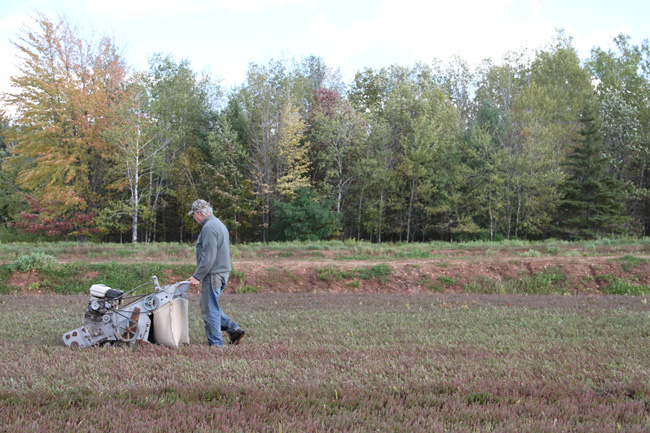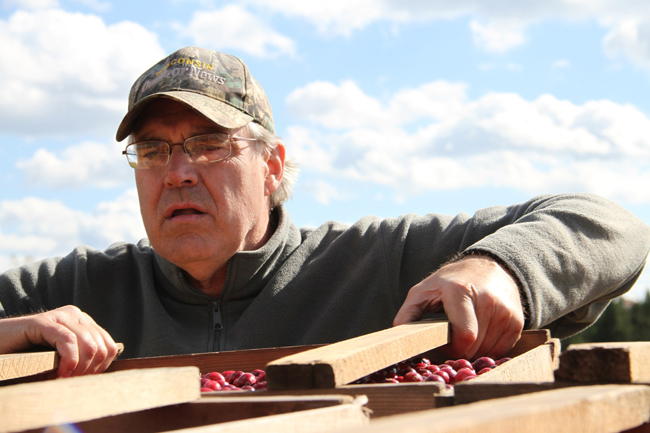
This post is sponsored by the Wedge Community Co-op.
If you were out driving Meunier Road in Vesper, Wis., you might not notice the three gently sloping dips in the landscape that make up the Ruesch Century Farm. That’s probably because this collection of five acres of low-growing shrubbery, nestled up against woodlands to the east and bordered by a petite irrigation pond on the north, is considered the smallest organic cranberry bog in the world. It is also the first certified organic cranberry farm in Wisconsin. Not that farming is a new thing for Brian Ruesch. His family has tended this land for more than 135 years, since his relatives came from Switzerland and Germany to homestead here in the 1860s. Cranberries are a somewhat recent addition.
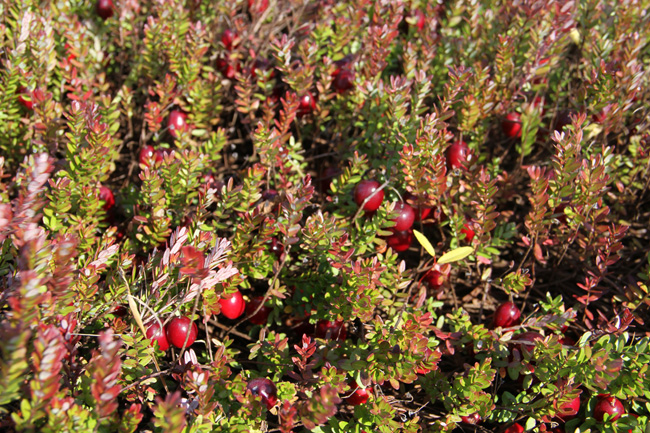
When Ruesch was a kid, the family raised cows on the farm and hand milked them. Back then there were about 1,500 dairy farms in the county. Farm kids were everywhere. In winter, they came over in droves to the big hill on the Ruesch farm, where the house and barn are located, and used it as a ski slope. They even hooked up an electric motor for lights and a tow rope. That’s all changed now. Ruesch works the land alone, with occasional help from his brother and others during the fall harvest. He has one cousin who owns a conventional marsh that you can see from the old skiing hill. But much of Ruesch’s extended family has moved on, along with much of the rest of the farming community. Today there are only 300 to 400 dairy farms left in the area — and a lot of cranberries. Wood County, Wis. is the largest cranberry producer in the world.
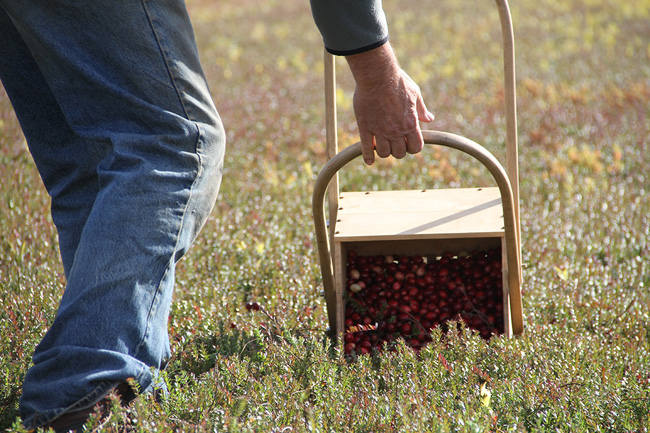
Which makes sense, because cranberries are native here, and grow well in this climate. Not that they’re easy to cultivate, especially organically. Insects and weeds are a real problem. But rather than use chemicals, Ruesch uses natural methods to keep the weeds under control until the cranberry vines are established enough to take over the marsh (read: a lot of hand weeding). And he uses controlled flooding to suppress fruit worms and fireworms. He’s following in his father’s footsteps, he says: “My dad was the first grower in the state who was organic certified. But it’s definitely not the easiest way of growing.”
The yield on organic cranberries is much lower than that of conventionally grown: about 10 times less. Ruesch also dry harvests with a mechanical cranberry rake and Amish-made, maple hand tools, which means that he has to work hard for every barrel of berries that come off the bog.
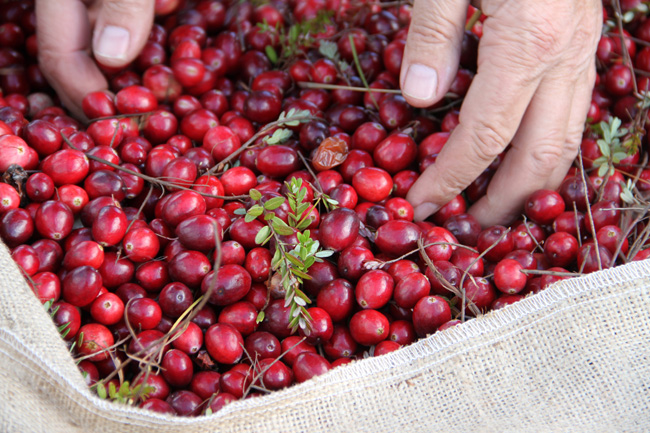
In a traditional wet harvest (what you’d see in an Ocean Spray commercial), you flood the bed with a foot of water, and then you use a device to press the vines down. This kicks the berries up to the surface because they float. Then you use paddles to raise the berries onto a conveyor belt, and then you’re off to the races. But Ruesch doesn’t do that. Cranberries often spend a lot of time in storage or on grocery store shelves, and when you wet harvest them, they get a bit more bruised. Moisture gets into the core, and they deteriorate much more quickly. Stores have to throw away a lot more. But with dry raking, you get less decay. Ruesch believes (and Rick Christianson at Co-op Partners Warehouse confirmed) that this method produces a superior berry that lasts longer. But it’s a heck of a lot of work.
“Oh my gosh,” said Ruesch, hauling off another bag. “It’s ridiculously more work. But I really believe at the end of the day customers are going to be more happy with my berries.”
Ruesch’s cranberries are available at a few Twin Cities locations this holiday season, including the Wedge Community Co-op.
